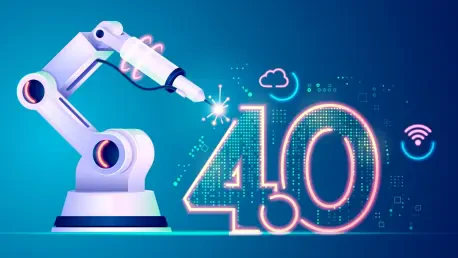In the heart of Mexican industry, a revolution is quietly reshaping the way businesses operate and innovate. The fourth industrial revolution, or Industry 4.0, heralds a new era in which technologies like artificial intelligence, data analytics, robotics, and cloud computing drive unprecedented change. For Mexico, this transformation presents both opportunities and challenges. Executives must navigate an intricate landscape where traditional leadership styles are no longer sufficient, necessitating leaders who can seamlessly integrate technology-focused strategies with astute business acumen. In response, Mexican companies are increasingly turning to specialized executive recruitment services to find leaders equipped to steer their organizations through this digital metamorphosis. As Mexico grapples with these shifts, understanding the new demands on leadership in Industry 4.0 becomes essential for sustaining competitive advantage and fostering economic growth.
New Leadership Demands in a Technological Era
Traditional leadership is undergoing a profound transformation as Industry 4.0 ushers in a new set of expectations and competencies that are vital for success in today’s interconnected business world. Leaders are now required to possess an intricate understanding of cutting-edge technologies alongside robust strategic insight, which is crucial for managing automated systems, leading digital transformation initiatives, and harnessing real-time data in decision-making processes. Technology not only influences operational aspects but also dictates new growth strategies and competitive positioning. Executives must be visionary, anticipating trends and adapting swiftly to changes in the technological landscape, ensuring their organizations stay ahead.
The necessity for specialized skills is reshaping the executive landscape, prompting firms to rethink hiring practices. Traditional managerial capabilities are becoming obsolete, making way for requirements such as data-driven decision-making, artificial intelligence proficiency, and cybersecurity awareness. Moreover, leaders must be adept at managing culturally diverse and remote teams, leveraging digital tools to enhance collaboration and productivity. This shift places significant emphasis on finding candidates who can blend technological proficiency with critical soft skills, such as emotional intelligence and adaptability. By equipping leaders with the skills to navigate digital complexity, firms ensure resilience and agility in a fast-evolving market landscape.
Role of Executive Recruiters in Navigating Change
As the demand for a new breed of leadership intensifies, the role of executive recruitment services has become indispensable. These recruiters serve as strategic partners, armed with industry-specific insights and extensive networks, capable of matching the right leaders to complex organizational needs. They possess a comprehensive understanding of evolving trends, allowing them to pinpoint candidates who can address the specific challenges posed by Industry 4.0. Their knowledge stretches beyond technological proficiency, encompassing cultural adaptability essential for thriving in Mexico’s unique business environment.
Executive recruiters offer advantages over conventional hiring methods, streamlining the process and enhancing decision-making. Their ability to quickly identify and engage high-caliber candidates minimizes recruitment risks and helps sustain momentum in the competitive market. Through personalized outreach and referral networks, they target desirable talent often beyond the reach of traditional advertising. This proactive approach not only reduces the time-to-hire but also guards against mismatches by aligning candidate expertise with organizational demands. Recruiters balance technical acumen and leadership prowess, ensuring top talent acquisition in an increasingly demanding technological landscape.
Navigating the Competitive Job Market
The rise of Industry 4.0 has sparked a highly competitive environment for executive talent. Companies are vying for leaders who possess the rare skill set necessary to drive technology-driven growth and innovation. This competition has intensified as qualified candidates receive lucrative offers from multiple organizations. Securing the right executive swiftly is critical, demanding an agile, informed recruitment approach that addresses unique organizational needs. In this scenario, recruitment services play a crucial role in providing companies with the necessary speed and precision to capture sought-after talent, ensuring alignment with strategic objectives.
Local expertise emerges as an invaluable asset in recruitment strategies, enhancing the ability to identify suitable leadership in Mexico. Despite the global nature of digital technologies, an understanding of local culture and business practices remains crucial for leadership success. Recruitment services reflect this dual understanding, ensuring leaders not only possess technological sophistication but also resonate with Mexico’s economic and cultural dynamics. This integration facilitates smoother transition and enduring success, enabling organizations to leverage local nuances while navigating the complexities of a global digital environment.
Conclusion and Road Ahead
Leadership is undergoing a significant transformation in the era of Industry 4.0, with an emphasis on new skills necessary for success in today’s interconnected business environment. Leaders must now integrate a complex understanding of innovative technologies with robust strategic insights. These dual proficiencies are essential for managing automated systems, spearheading digital transformation, and utilizing real-time data in decision-making. Technology is not just affecting operations but also guiding growth strategies and shaping competitive positioning. Executives need to be visionary, predicting trends and adapting swiftly to stay ahead in the evolving tech landscape. Firms are reevaluating hiring practices as traditional skills become outdated; the focus has shifted to data-centric decision-making, mastery of artificial intelligence, and cybersecurity awareness. Leaders should also efficiently manage culturally diverse and remote teams, using digital tools to boost collaboration and productivity. This requires blending tech skills with soft skills like emotional intelligence and adaptability, ensuring resilience in a rapidly evolving market.









